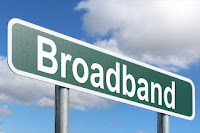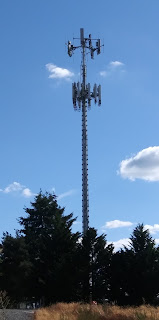On December 27, Free State Foundation President Randolph May published "Demise of Chevron Deference Promotes Regulatory Certainty," a Perspectives from FSF Scholars. In the Perspectives, President May defended the Supreme Court’s June 2024 decision in Loper Bright Enterprises v. Raimondo – which overturned the "Chevron doctrine" – against the claim that the decision would undermine stability or certainty in the law and undermine economic activity such as that private investment.
In reality, the "Chevron doctrine" that required courts to defer to agency interpretations of statutory terms claimed to be ambiguous created a tremendous lack of stability and uncertainty in the law.
To reinforce the points made in President May's Perspectives, the opinion of the court in Loper Bright is worth quoting:
Nor has Chevron been the sort of "'stable background' rule" that fosters meaningful reliance. Post, at 8, n. 1 (opinion of KAGAN, J.) (quoting Morrison v. National Australia Bank Ltd., 561 U.S. 247, 261 (2010)). Given our constant tinkering with and eventual turn away from Chevron, and its inconsistent application by the lower courts, it instead is hard to see how anyone-Congress included-could reasonably expect a court to rely on Chevron in any particular case. And even if it were possible to predict accurately when courts will apply Chevron, the doctrine "does not provide 'a clear or easily applicable standard, so arguments for reliance based on its clarity are misplaced.'" Janus, 585 U.S., at 927 (quoting South Dakota v. Wayfair, Inc., 585 U.S. 162, 186 (2018)). To plan on Chevron yielding a particular result is to gamble not only that the doctrine will be invoked, but also that it will produce readily foreseeable outcomes and the stability that comes with them. History has proved neither bet to be a winning proposition.
Rather than safeguarding reliance interests, Chevron affirmatively destroys them. Under Chevron, a statutory ambiguity, no matter why it is there, becomes a license authorizing an agency to change positions as much as it likes, with "[u]nexplained inconsistency" being "at most . . . a reason for holding an interpretation to be . . . arbitrary and capricious." Brand X, 545 U.S., at 981. But statutory ambiguity, as we have explained, is not a reliable indicator of actual delegation of discretionary authority to agencies. Chevron thus allows agencies to change course even when Congress has given them no power to do so. By its sheer breadth, Chevron fosters unwarranted instability in the law, leaving those attempting to plan around agency action in an eternal fog of uncertainty. Chevron accordingly has undermined the very "rule of law" values that stare decisis exists to secure. Michigan v. Bay Mills Indian Community, 572 U.S. 782, 798 (2014).
In his Perspectives, President May included a brief quotation from Justice Neil Gorsuch's concurring opinion in Loper Bright. A fuller quotation is also worth reading:
Far from engendering reliance interests, the whole point of Chevron deference is to upset them. Under Chevron, executive officials can replace one "reasonable" interpretation with another at any time, all without any change in the law itself. The result: Affected individuals "can never be sure of their legal rights and duties." Buffington, 598 U.S., at__ (slip op., at 12).
How bad is the problem? Take just one example. Brand X concerned a law regulating broadband internet services. There, the Court upheld an agency rule adopted by the administration of President George W. Bush because it was premised on a "reasonable" interpretation of the statute. Later, President Barack Obama's administration rescinded the rule and replaced it with another. Later still, during President Donald J. Trump's administration, officials replaced that rule with a different one, all before President Joseph R. Biden, Jr.'s administration declared its intention to reverse course for yet a fourth time. See Safeguarding and Securing the Open Internet, 88 Fed.Reg. 76048 (2023); Brand X, 545 U.S., at 981-982. Each time, the government claimed its new rule was just as "reasonable" as the last. Rather than promoting reliance by fixing the meaning of the law, Chevron deference engenders constant uncertainty and convulsive change even when the statute at issue itself remains unchanged.
Nor are these antireliance harms distributed equally. Sophisticated entities and their lawyers may be able to keep pace with rule changes affecting their rights and responsibilities. They may be able to lobby for new "'reasonable'" agency interpretations and even capture the agencies that issue them. Buffington, 598 U.S., at__,__ (slip op., at 8, 13). But ordinary people can do none of those things. They are the ones who suffer the worst kind of regulatory whiplash Chevron invites.
Notably, Justice Gorsuch's concurring opinion in Loper Bright identified the FCC's flip-flopping on the regulatory classification status of broadband Internet access service under the Court's 2005 NCTA v. Brand X Internet Services decision as a prime example of how the “Chevron doctrine” warped the rule of law and undermined legal certainty. The legal challenge to the FCC's decision to reclassify broadband Internet services as a Title II "telecommunications service" and subject it to public utility regulation is presently before the Sixth Circuit, and a decision is expected in 2025.
Chevron enabled Administrations to twist and abuse the law. Thankfully, the decision in Loper Bright ends the Court's runaway experiment with regulatory agency supremacy in statutory interpretation and brings those issues back within the wheelhouse of the judicial branch.
.jpg)

















